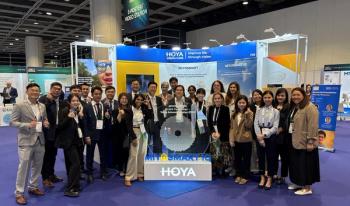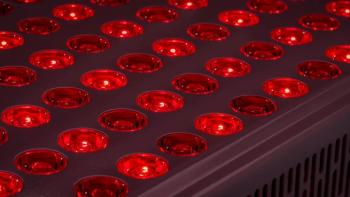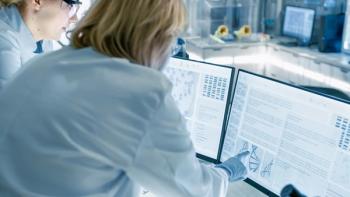
Q&A: Kelly Nichols, OD, MPH, PhD
Midway through my education at University of California in San Diego, I was meeting with guidance counselors about what type of medical field I might like, and I hadn’t decided.
How did you get interested in optometry?
Midway through my education at University of California in San Diego, I was meeting with guidance counselors about what type of medical field I might like, and I hadn’t decided. So I went home for the holidays and talked to my dad’s friend who was an optometrist. It didn’t hit my consciousness until this family friend went over all these elements about why the optometry profession was so wonderful, including nice healthcare profession where you can interact with patients but it doesn’t have blood involved. [Laughs] I perked up at that. Really? No blood? Well, optometry sounded like a good idea.
How did you get interested in dry eye?
I went to Omni Eye Specialists in Denver to do one of my externships. Denver is a mile high, it’s very dry, and we saw dry eye patients all the time. I liked that setting so much I ended up doing a residency there. So for the next year, I spent quite a bit of time seeing dry eye patients. At the time, I loved retina the most because I loved taking fundus photographs. I was responsible for sending out sample slides of patient cases to practitioners. I loved that. One of my instructors, Karla Zadnick from Berkeley, had been recruited to go to Ohio State. She said, “Why don’t you consider getting your PhD in Ohio? We have an opportunity to make a difference.” So, off I went to Ohio. I was thinking about the topic for my PhD work. At the time there wasn’t a lot of place for research in retina. Since I’d seen so many dry eye patients in Denver, I thought, “I think I’m interested in dry eye.”
Why did you pursue your MPH in biostatistics during your PhD work?
My PhD work really did focus on ocular surface disease and dry eye. As part of the PhD training, I had taken a course in biostatistics and epidemiology. I had taken so many of those courses and was so interested, I figured it wouldn’t take much for me to actually complete this degree as well. I had to round out taking some classes in healthcare policy and a culminating research experience, do analysis, and write a large paper. I was able to graduate with a degree pretty much simultaneously. The university wouldn’t allow you graduate with the same degree in the same quarter, so I graduated with the Masters in Public Health first and then the next quarter with the PhD.
What have you learned about causes of dry eye among postmenopausal women?
The focus of that research mostly has been to look at the profiles of the lipids that you can collect. Over the last 10 years we’ve been working to identify the major components of lipids in meibomian secretions to improve the understanding of how that helps create a stable tear film. We have uncovered some types of lipid species that weren’t known previously that are important in the stability of the tear film. We’ve been able to categorize patients that are in these data sets as “dry eye” or “not dry eye” and look for differences in their lipid profiles. Indeed there are some. There are interesting questions we have yet to explore, such as if a woman goes through menopause at an earlier age or if she has a more symptomatic menopausal period, will that lead to a higher predominance of dry eye. Not all women who go through menopause have dry eye-the disease is so multifactorial.
Any emerging treatments with encouraging therapeutic results?
A few therapeutic approaches beyond instrumentation are in Phase II or III of the FDA process. It sure would be nice to have another therapeutic approach to treatment of ocular surface disease other than Restasis or steroid. There are initiatives ongoing right now to define the minimum level of activity for screening, diagnosis, and management of dry eye patients. Once we all start looking at that more closely, as a profession as a whole, even in the most basic ways, certainly then there will be emerging technologies that make diagnosis easier, monitoring therapy easier, and even in-office therapies easier.
Why is it important to be involved in leadership?
I always have been involved in leadership elements. As a student, I was American Optometric Student Association president. As an early professional, those leadership opportunities allowed me to meet other optometrists in my region and get involved in the state association. I’ve been involved in almost every professional organization that optometry offers. I have always valued the leadership because the individuals who I have met in those settings either influenced me in a memorable way or some of them were the impetus for me to go to grad school. So, I really feel like there is an element of mentorship that occurs in those leadership situations. I want to help mentor or train the next generation. I think that as a profession, we’ve been somewhat lax at looking below us to determine who those next up-and-comers might be and helping to promote them. It’s somewhat altruistic in that I’m hoping for the best for our profession, but it’s also extremely rewarding to engage with others who are like-minded and have the same passions that you do.
What's kept you in academia? Have you ever been tempted to stray to industry?
I have been in academia for so long. I enjoy the elements of knowing a little bit about everything. I’ve had such a bountiful experience working with industry through clinical research, clinical trials, and consulting. Since I do have that degree in biostatistics and study design, I have been called on to help companies who have a fledgling dry eye therapy understand the nuances of a dry eye clinical trial. I have exposed myself to industry in a way that maintains some neutrality. I don’t have to work for just one company. I do enjoy the multitude of activities I have in academic life in that I can still really focus in the topical area that I enjoy, but I can work with a number of companies in a variety of different ways to help them. Hopefully that helps our students and our faculty. I hope that through my involvement with many of these companies that they see there’s a broad audience out there.
Do you ever reflect on your career in a quiet moment and go, "Whoa!"?
It has been a relatively fast trajectory, but these experiences don’t always come with timelines attached to them. (Becoming a dean) was a challenge because I have a busy life and a spouse who does research in exactly the same way that I do, the exact same degrees, and a passion for the field. In the beginning of the process, I didn’t see that I was going to make it all the way to the end. As I’ve gone through this current year, it’s been kind of a crazy year assuming this position, and I’ve had to give up some of the things I like doing to focus on doing this new job well. So, you never can see where that path is going to go or how it’s going to take you. I hope I can do the history of UAB justice and do right by all the faculty members who are here.
What do you advise young ODs who are considering an academic career?
I certainly would advise them that it can be a really rewarding career. There are so many facets to academic life that are intriguing. That for me has been the best thing. I wouldn’t have ever been able to stay engaged in staying a private practitioner. Most of my friends who have successful practices are very engaged in other elements of their practices. Engaged people find a way to stay engaged. I would have as well, but academic optometry has provided me with so many experiences to meet individuals all across the country and across the world through the research that I’ve done and through people who are in my area so it’s never provided a dull moment. And I guess I would encourage that (an OD) looking for that has passion, has interest, there’s certainly a place for them.
You've lived in Reno, Berkeley, Columbus, Houston, Denver, San Diego, and now Birmingham. What's your favorite?
San Diego is the place with the most perfect climate, and that’s on my “Boy, if I could ever afford it, wouldn’t it be nice to retire in San Diego” list. I appreciate being able to find something unique in all the places I’ve lived. Columbus is a wonderful place to have a family, it’s a lot like Birmingham, actually. Birmingham might be one of the prettiest places I’ve lived. It’s very different from the cement jungle that is Houston. I think there’s something unique and interesting about all the places I’ve lived, but I would love to retire in San Diego [laughs].
Do you have any regrets?
No. My path has been interesting along the way. As I’ve moved I do regret that sometimes I’ve lost touch with some people who I was close with. That makes it hard because your life and your family and everything moves at such a fast speed when you go from a place to a place to a place. It’s hard to have some roots, and we’re working hard now to establish our family here. I’ve met more people who are from here, went away to college and came back here. So, there’s really some sense of having strong roots here-more so than any other place I’ve been.
What's the craziest thing you've ever done?
When I was an undergrad in San Diego, I lived about a nine-hour drive away from home. We had gone out with our friends on the eve of finals and finals being over, we stayed out longer than we should have. I got back to my place and decided, “I was going to get up in an hour, I might as well get in the car and start.” Going from San Diego to Reno, you drive straight through the desert, so there’s not much to see. An hour and half before I get home, I’m exhausted and thinking this was a really bad idea, probably dangerous, because I’m falling asleep at the wheel. I pull off at a rest stop, get a dollar’s worth of gas so that I have enough to barely make it home, and I count out my remaining money-emptying the pennies from the ashtray in my car-to buy a Snicker’s bar and a small coffee. I made it home, said “Hi” to my mom, and went to bed for 12 hours.
Newsletter
Want more insights like this? Subscribe to Optometry Times and get clinical pearls and practice tips delivered straight to your inbox.





























